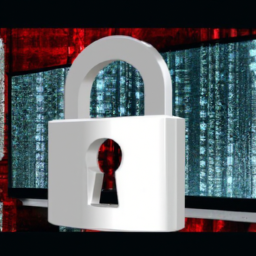The Impact of Personal Data Breach
The recent surge in data breaches has highlighted the pressing need for effective security measures in managing personal data. When unauthorized individuals gain access to sensitive information such as names, dates of birth and Social Security Numbers, the implications can be far-reaching and devastating. It is imperative that both individuals and organizations understand the risks associated with personal data breaches and take proactive steps to mitigate them.
Understanding the Nature of Personal Data Breach
A personal data breach occurs when confidential information is exposed to unauthorized individuals or entities. This can happen due to various reasons, such as hacking, poor system security, lost devices, or human error. The data accessed can include names, dates of birth, and Social Security Numbers. Such information can be exploited in a number of ways, including identity theft, fraudulent transactions, or even blackmail.
| Type of Data | Potential Misuse |
|---|---|
| Names | Identity Theft |
| Dates of Birth | Fraudulent Accounts |
| Social Security Numbers | Financial Fraud |
The Consequences of a Data Breach
Data breaches pose significant risks not only to the individuals whose data has been compromised but also to the organizations responsible for protecting that data. The consequences of failure to protect sensitive data can be severe, ranging from reputational damage to heavy fines and legal repercussions. Furthermore, the victims of these data breaches often have to deal with the emotional stress and financial burden caused by identity theft or other forms of fraud.
Proactive Measures to Protect Personal Data
Given the serious consequences of data breaches, it is essential to adopt proactive measures to protect personal data. These may include implementing robust cyber-security measures, conducting regular security audits, and ensuring the secure disposal of sensitive data. Furthermore, educating employees and consumers on safe online practices, such as using strong passwords and avoiding phishing scams, can greatly reduce the risk of a data breach.
FAQs
| Questions | Answers |
|---|---|
| What is a personal data breach? | A personal data breach occurs when confidential information is exposed to unauthorized individuals or entities. |
| What types of data can be accessed in a data breach? | The data accessed can include names, dates of birth, and Social Security Numbers. |
| How can organizations protect personal data? | Organizations can protect personal data by implementing robust cybersecurity measures, conducting regular security audits, and educating employees on safe online practices. |
In conclusion, the breach of personal data, including names, dates of birth, and Social Security Numbers, presents significant challenges to individuals and organizations alike. However, through diligent security practices, ongoing education, and regular audits, it is possible to minimize the risk of data breaches and their consequential damages.

Leave a Reply